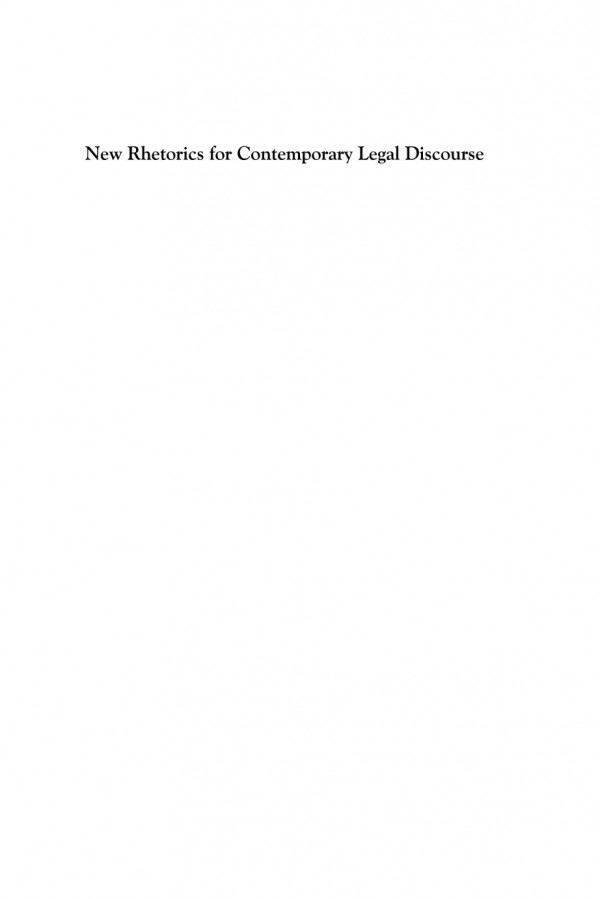

Most ebook files are in PDF format, so you can easily read them using various software such as Foxit Reader or directly on the Google Chrome browser.
Some ebook files are released by publishers in other formats such as .awz, .mobi, .epub, .fb2, etc. You may need to install specific software to read these formats on mobile/PC, such as Calibre.
Please read the tutorial at this link: https://ebookbell.com/faq
We offer FREE conversion to the popular formats you request; however, this may take some time. Therefore, right after payment, please email us, and we will try to provide the service as quickly as possible.
For some exceptional file formats or broken links (if any), please refrain from opening any disputes. Instead, email us first, and we will try to assist within a maximum of 6 hours.
EbookBell Team

4.3
58 reviewsAre the general and the particular separated in legal rhetorics? What is the function of singular events, facts, names in legal argumentation and what is their relationship to legal normativity? Bringing together an international range of legal scholars, this collection takes a diachronic approach and addresses these questions from the perspective of contemporary legal discourse.
The book explores the changes in legal form and transmission that have been generated both by globalisation and by common law’s irreversible encounter with the civilian methods of European law. It explores how, in the contemporary legal discourse, exemplarity – and all rhetoric processes based on the general-particular dichotomy more generally – regained relevance. In doing so, it highlights the centrality of the example and proposes the development of new rhetorical approaches better suited to today’s legal practices which operate in a globalised field.